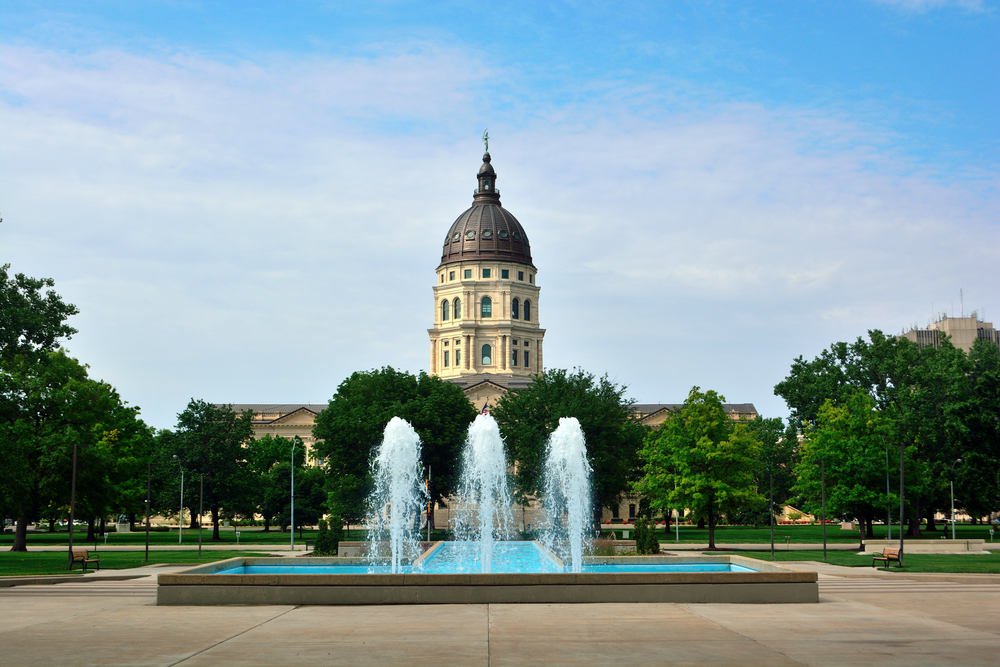By CRISTINA JANNEY
Hays Post
This is the first time in years the Kansas Legislature will be entering the session without a budget deficit to battle.
Instead of looking for cuts or ways to increase revenue, local legislators said they will be looking at tax relief.
They also said they hope to give attention to programs that have suffered during the budget struggles, including KPERS and transportation.

Taxes
Sen. Rick Billinger, R-Goodland, in a recent interview for Eagle TV’s Forum, said he would like to see a “decoupling” of state income taxes from federal income taxes.
As a result of Congress increasing the standard deduction on federal income taxes, many filing Kansas tax returns would no longer be able to itemize.
This would mean about a $40 million increase in tax revenue for the state of Kansas.
Billinger said he believed even if small businesses or individuals claimed a standard deduction on their federal taxes, they should be able to itemize their state taxes, which would put a portion of that $40 million back into the hands of taxpayers. Billinger said he would like to see this changes made retroactive for 2018.
Several local legislators said they also would consider reducing or eliminating the state sales tax on food, a campaign promise of Gov.-elect Laura Kelly.
Rep. Ken Rahjes, R-Agra, who is a member of the Taxation Committee, said he thought there was a firm resolution among legislators this year to not raise taxes. He said he would support a reduction in the sales tax on food, but he did not think it would be eliminated.

“I think we need to have a realistic look at where our dollars are,” he said. “Our economy in our area is still very much challenged in agriculture and oil production. Once we get those things back in, the economy will be a little stronger. If you look at the overall economy, it is doing well, but it could do better.”
Just as Billinger, Rahjes said he supports legislation that would address the changes in the federal tax code and send back money to the working Kansans.
Budget
Rep. Troy Waymaster, R-Bunker Hill, has been reappointed as chairman of the House Appropriations Committee.
“As far as the budget, my main goal is to do some corrective strategy and basically realigning our budget,” he said. “We have done some work on that in the last couple of years since I have been chairman, but there is still some of what I would call creative accounting techniques being used — mainly transfers not going to the Kansas Department of Transportation. There are some things we need to strategically correct with the state budget.”
In terms of transportation, Rahjes said he would specifically like to see KDOT put a priority on a project to widen and straighten Kansas Highway 383 in Norton and Phillips counties. That project has been on the KDOT project list for some time and has become a safety issue, Rahjes said.
The state is heading into the session with about a $900 million surplus, but Waymaster said the state needs to meet the obligations it already has before spending that money on new programs.
Those obligations include KPERS as well as increasing funding to the K-12 education by $90 million to satisfy a ruling by the Kansas Supreme Court in the ongoing school funding lawsuit.

Waymaster said he sees some additional funds coming into the Kansas coffers due to a U.S. Supreme Court decision that will allow states to collect sales tax on online purchases and another Supreme Court ruling that has legalized sports betting. However, he said he did not think either one of the changes will be significant revenue producers.
Waymaster said he did not think the Legislature would eliminate the sales tax on food, as that tax generates $300 million to $340 million in state revenue annually.
Medicaid expansion
Gov.-elect Kelly said during her campaign that she would support Medicaid expansion, but some Republicans still oppose that measure, including Waymaster and Rahjes.
Although the federal government pays 90 percent of Medicaid expansion, both House members expressed concerns about how the state would pay for the other 10 percent, about $30 million to $80 million annually. The legislators also said they were concerned the federal government might decrease its contribution for Medicaid expansion in the future, leaving the state with a larger bill.
Billinger, however, said many of the state’s rural hospitals would benefit from Medicaid expansion.
“As long as there is a work component in it and it is revenue neutral, I am good with it,” Billinger said. “I think it is something we should look at.”
Hemp
Legislation was passed last session that created a test program for cultivation of industrial hemp in Kansas. The federal Farm Bill further opened opportunities for growers nationwide by declaring industrial hemp a farm commodity. However, local legislators noted changes would have to be made to the state legislation to conform to the Farm Bill.
They hoped this corrective action could be made in time for the beginning of the hemp growing season in April.
Economic Development
Waymaster said he hopes to reintroduce a version of the Ad Astra Jobs Act, which he sponsored in 2017. The legislation would create a tax incentive program for businesses to move into rural communities and create jobs.
Telemarketers
Rahjes said he would support a piece of legislation, which has been pre-filed for the 2019 session, that would place tougher restrictions on telemarketing calls to cell phones.
“What it has done is cause people to not pick up their phones anymore,” Rahjes said. “Everybody is screening their calls.”
Freshman Rep. Barb Wasinger, R-Hays, was contacted for this story, but said she would be better able to comment on the issues after she has been in Topeka for a few weeks.
